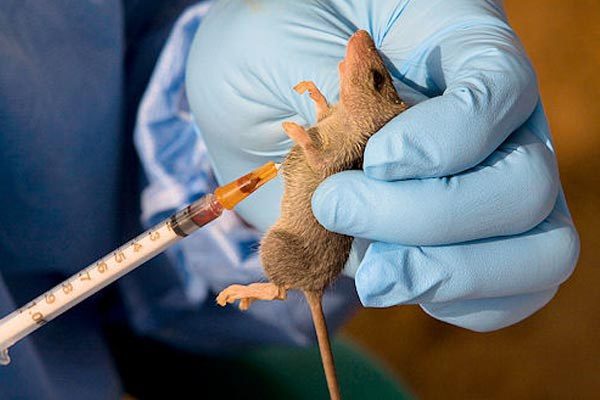The Nigeria Centre for Disease Control and Prevention (NCDC) said it has registered 244 confirmed cases of Lassa Fever in 16 states and the FCT as at January 22.
Director-General, NCDC, Dr Ifedayo Adetifa, told the News Agency of Nigeria (NAN) Monday in Abuja that the centre also recorded 37 deaths, a case fatality rate of 15.1 per cent.
The Lassa fever infections were recorded in Ondo State (90), Edo (89), Bauchi (13), Taraba (10), Benue (9), Ebonyi (9), Nasarawa (7) and Plateau (5).
Others are Kogi (4), Anambra (2), Delta (1), Oyo (1), Adamawa (1), Enugu (1), Imo (1), and the FCT (1).

He said among five health workers confirmed infected in the line of duty, one of them died.
Dr Adetifa said the centre activated a national multi-sectorial Emergency Operations Centre (EOC) on January 20 to coordinate and strengthen on-going response activities.
The centre is powered by officials of the NCDC and those of relevant ministries, departments, and agencies, other stakeholders and major partners.
“The outcome of the risk assessment placed Nigeria at a very high risk as increased transmission has been recorded compared to previous years, just as the number of states infected has risen.
“Healthcare workers have also been shown to be at increased risk of infection and death,’’ he said.
Adetifa also told NAN that the EOC would coordinate national response, especially across affected states to interrupt disease transmission, reduce impact by reduce sufferings and death.
He appealed to states of the Federation to support the NCDC as lead agency in the development and implementation of evidence-driven outbreak response plans for their territories.
He said that prior to the activation of EOC, the NCDC had deployed national rapid response teams to hotspot states to support contact tracing, case management, risk communication and community engagement, among others.
It also developed a national Incident Action Plan to ensure coordinated response at all levels and planned the deployment of surge staff for Lassa fever case management to high-burden states.
He explained that healthcare workers at most risk were those who clean and disinfect contaminated surfaces, materials, and supplies without adequate protective gear.
Laboratory workers who handle blood samples of suspected Lassa fever patients without appropriate precautions, are also at high risk, he added.
“Most at risk for Lassa fever are persons who prepare and or handle bodies of deceased Lassa fever cases without appropriate precautions,’’ he stressed.
Adetifa enjoined healthcare workers to always wear gloves and other appropriate personal protective equipment while handling patients or providing care to patients and their relatives.
“Healthcare providers should report all suspected cases of Lassa fever to their local government Disease Surveillance and Notification Officer for immediate access to healthcare.
“This is essential because early identification and treatment of cases appear to be more effective and can save lives,’’ he said.
Adetifa enjoined Nigerians to keep their environment clean always; block all holes in residences to prevent access by rats and other rodents, cover dustbins and dispose of refuse properly.
“Communities should set up dump sites very far from their homes so as not to attract rats and other rodents just as foodstuffs should be kept in containers with tight-fitting lids.
“Avoid drying foodstuffs on roadsides where they will be at risk of contamination. Avoid bush burning which can lead to the displacement of rats from bushes to human dwellings.
“Practice good personal and hand hygiene by frequently washing hands with soap under running water or use of hand sanitisers when appropriate.
“Visit the nearest health facility if you notice any of the signs and symptoms associated with Lassa fever and avoid self-medication,’’ he advised.
Lassa fever is an acute viral haemorrhagic fever caused by the Lassa virus. The natural reservoir for the virus is the rat and other rodents.
The virus spreads through direct contact with urine, faeces, saliva, or blood of infected rats and contact with objects, household items and surfaces contaminated with the urine, faeces, saliva, or blood of infected rats.
Consumption of food or water contaminated with the urine, faeces, saliva, or blood of infected rats; person-to-person contact with blood, urine, faeces, and other body fluids of an infected person could also lead to infection.
Lassa fever initially presents like other commonplace illnesses accompanied by a fever such as malaria.
Other symptoms include: headache, general body weakness, cough, nausea, vomiting, diarrhoea, muscle pains, chest pain, sore throat, and in severe cases, bleeding from ears, eyes, nose, mouth and other body openings.

